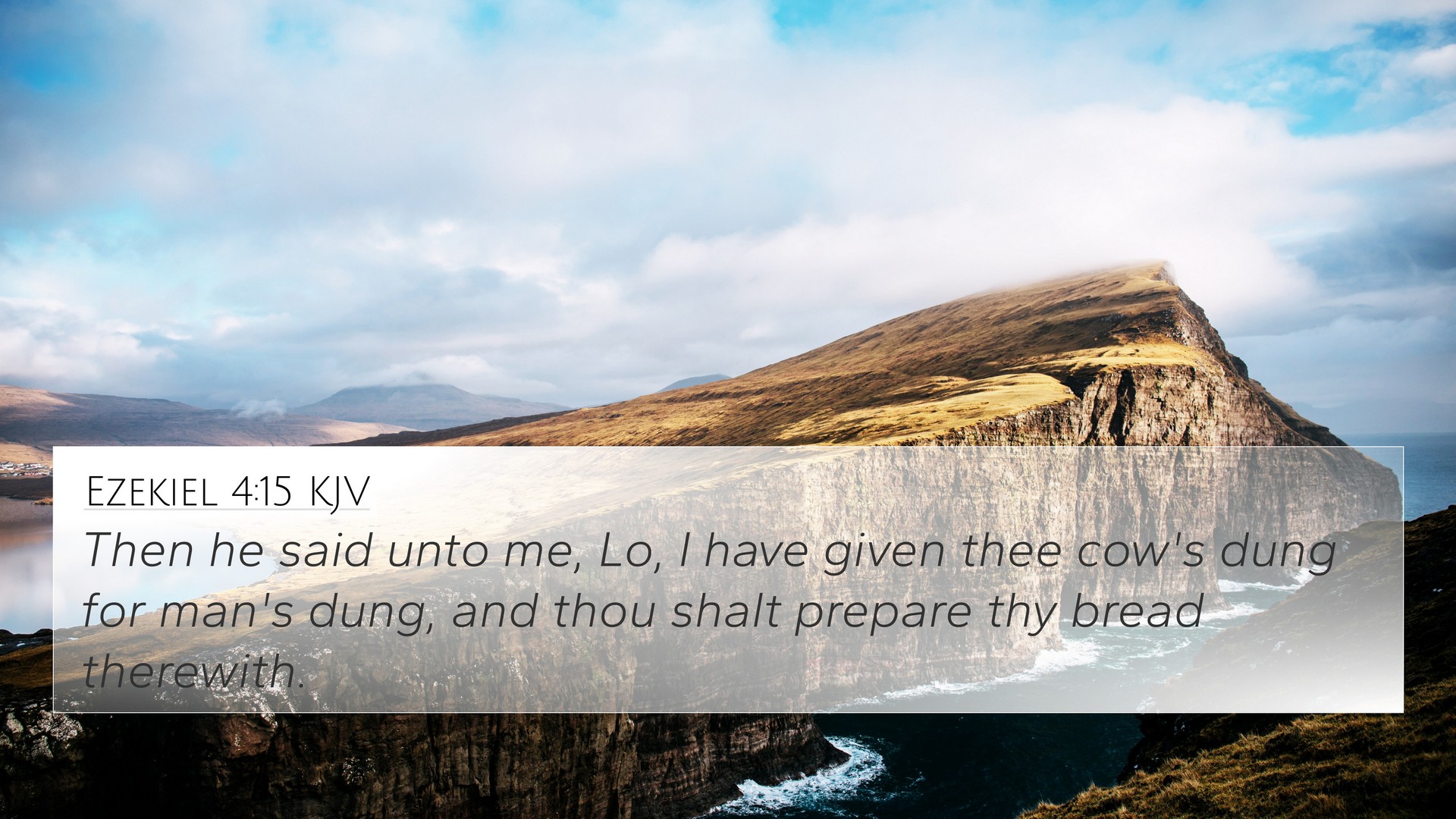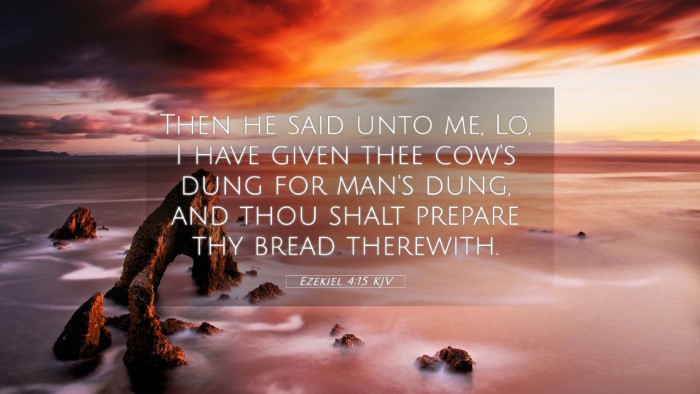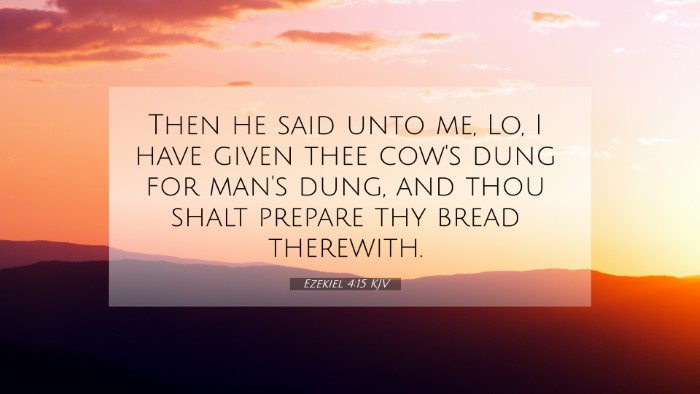Ezekiel 4:15 - Understanding and Interpretation
Ezekiel 4:15 states:
"Then he said to me, 'See, I have given you cow's dung instead of human dung, and you shall prepare your bread on it.'" (Ezekiel 4:15, ESV)
This verse is part of a vision given to the prophet Ezekiel during his time in exile. It contains rich symbolism and requires careful interpretation to grasp its meaning fully. Below, we explore insights from respected public domain commentaries to offer a comprehensive understanding of this passage.
Commentary Insights
Matthew Henry’s Concise Commentary
Matthew Henry emphasizes that this instruction to use cow's dung instead of human dung illustrates God's warning to the Israelites about the dire consequences of their sinful actions. The use of cow's dung is a symbol of less severity, indicating God's mercy, as human dung represents the unclean nature of sin. Through this action, Ezekiel serves as a living symbol of the hardships that the people will face during the siege of Jerusalem.
Albert Barnes' Notes on the Bible
Albert Barnes notes that the symbolic act of using cow's dung signifies the abominable state of Israel due to their continuous disobedience. The provision of cow's dung can be seen as a lesser evil compared to the starker implications of human dung, which alludes to deeper issues of ceremonial impurity and sin. This aligns with God's intention to demonstrate the severity of Israel's rejection of His commandments, while still offering a form of sustenance amidst impending judgment.
Adam Clarke's Commentary
Adam Clarke provides additional context, stating that this directive served as a shocking symbol to the Israelites about the deteriorating conditions they would face during their captivity. The bread baked on the dung signifies the basic sustenance available during times of extreme duress. Clarke notes that God often uses stark imagery to convey messages to the people, reminding them of their compromised state both physically and spiritually.
Thematic Connections
The act delineated in Ezekiel 4:15 connects to broader biblical themes, reflecting on human uncleanliness, divine mercy, and the need for purification. Here we will explore cross-references that provide further depth to this verse:
- Isaiah 64:6 - "All of us have become like one who is unclean, and all our righteous acts are like filthy rags." This reinforces the theme of human uncleanliness before God.
- Jeremiah 14:3 - "Their nobles send their servants for water; they go to the cisterns but find no water." This reflects the dire conditions compared to Ezekiel's dire message to the people.
- Daniel 1:12 - "Please test your servants for ten days: Give us nothing but vegetables to eat and water to drink." This passage shows a commitment to purity amidst dietary restrictions, paralleling the symbolism in Ezekiel’s act.
- Revelation 22:15 - "Outside are the dogs and those who practice magic arts, the sexually immoral, the murderers, the idolaters, and everyone who loves and practices falsehood." An acknowledgment that unclean individuals are separated from divine blessing.
- Hebrews 13:10 - "We have an altar from which those who minister at the tabernacle have no right to eat." This reflects the association of purity with the offerings brought before God.
- Matthew 15:17-20 - Where Jesus teaches that "what goes into someone's mouth does not defile them, but what comes out of their mouth." This speaks to the heart of ritual vs. the moral state of humanity.
- Luke 10:34 - The parable of the Good Samaritan who cares for the wounded man, illustrating mercy and compassion amidst a dirty circumstance.
Understanding Cross-References
Cross-referencing provides a deeper comprehension of scripture, linking relevant themes across the Bible. For instance, the theme of God’s provision and mercy amidst human failure can be traced throughout the Old and New Testaments. Tools for Bible cross-referencing can greatly aid in understanding how specific themes intersect, including:
- Bible concordance
- Bible cross-reference guide
- Comprehensive Bible cross-reference materials
By employing these tools, one can effectively study how diverse scriptures contribute to a cohesive understanding of Biblical truths such as those present in Ezekiel 4:15.
Applying the Message of Ezekiel 4:15
In our modern-day context, this verse serves as a reminder of the consequences of turning away from God's ways. It illustrates the need for humility, repentance, and recognition of God’s mercy despite our sinful nature. Applying this understanding encourages believers to seek out the transformative power of God's grace in their lives.
Conclusion
Ezekiel 4:15 provides profound insight into the nature of God’s judgment and mercy through its symbolic actions. By examining the interpretations offered in public domain commentaries and applying the principles of cross-referencing, believers can gain a more nuanced understanding of scripture that speaks to both ancient and contemporary contexts.


